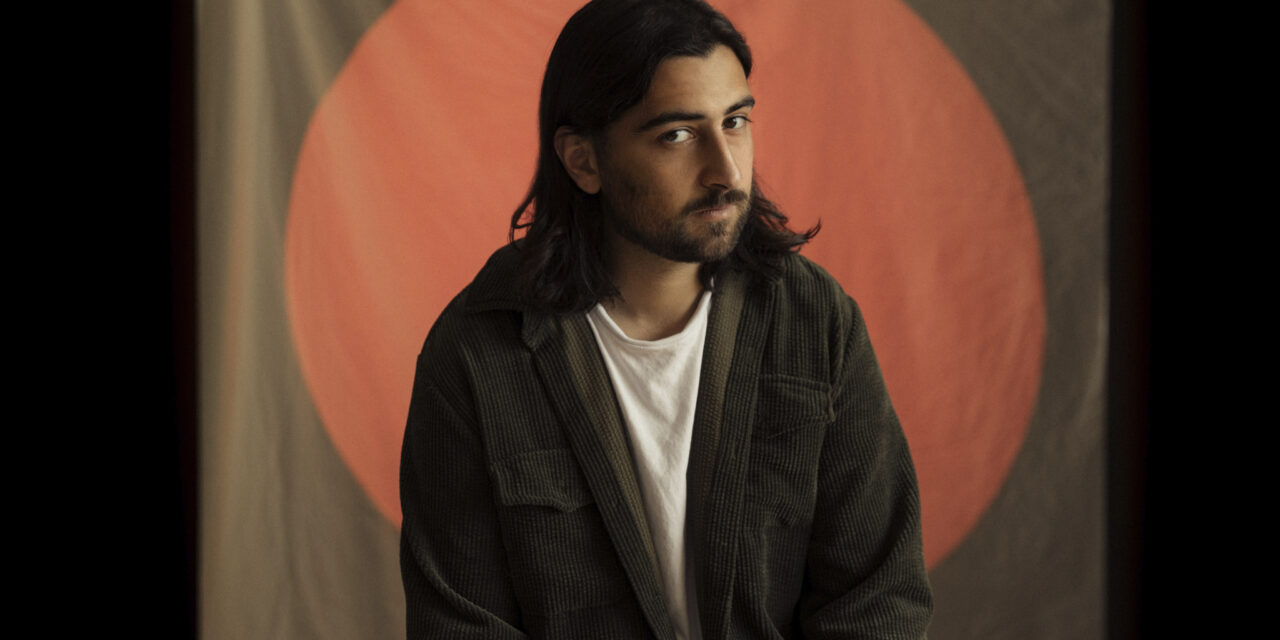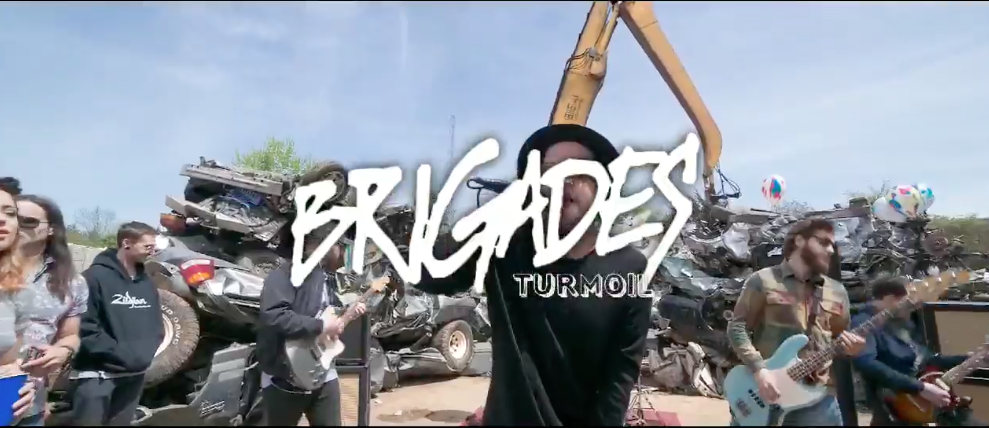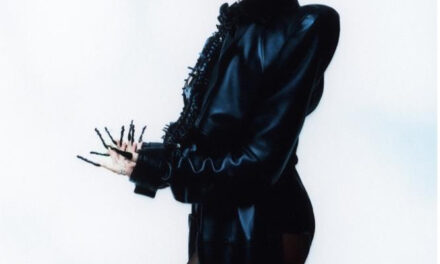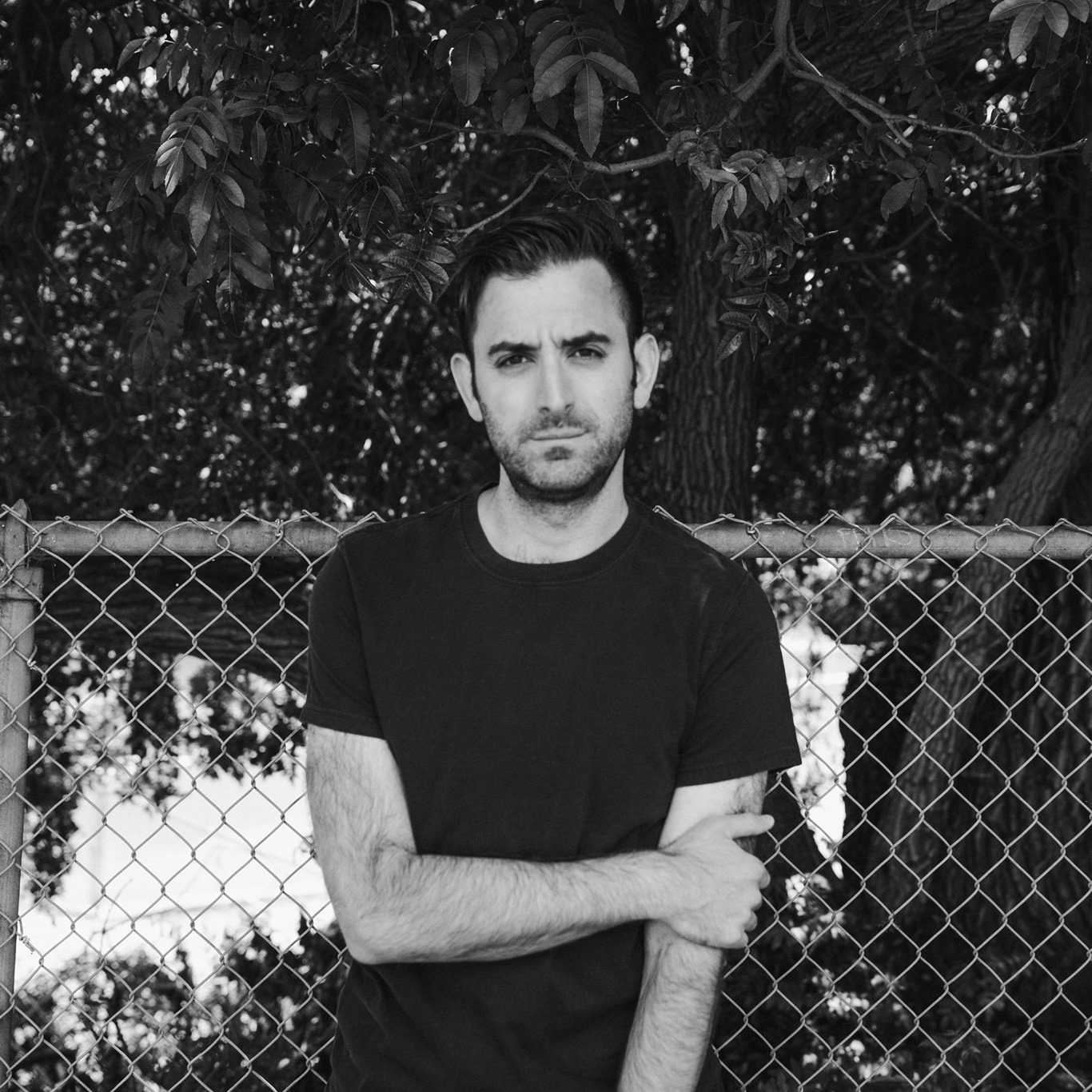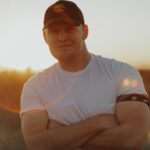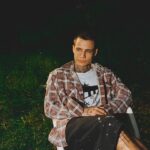Around June 2019, I spoke to singer/songwriter Noah Kahan about his debut album, Busyhead. It was a particular time in his life where he was on the precipice of the stardom that he always wanted. Kahan’s brand of folk-pop spoke candidly about the excitement and the apprehension of leaving the comfort of everything you once knew behind. Like the past year and a half, many of us had some time to do a bit of self-reflection. There were few places to go where we could run to. Perhaps it was back to your old childhood room at your parents. Getting to know the nook and crannies of your living space a bit more intimately. The work always catches up to you. So, confront the darkest parts of yourself and hope you come out on the other side.
Kahan gives us his sophomore album I Was / I Am. It’s natural for musicians to want to go bigger. Growing arrangements, the array of instrumentation, the themes of their lyricism, and the reach of their work. Kahan doesn’t lose the hometown, personalized nature of his songs. In fact, they dive deeper into his psyche. A ten-song symphony of learning and unlearning. Along for the ride is newfound confidence and desire for these songs to bounce of lungs and the metal beams of stadiums around the world.
We spoke about how I Was / I Am came together, Kahan’s personal growth through the COVID-19 pandemic, and how he brought these songs from live sessions on Instagram Live to now.
With the Cape Elizabeth EP, you gave yourself a week’s deadline to compose those songs. It appears it stretched different creative muscles of yours. Then, in late 2020, you started work on I Was/ I Am with producer Mark Rankin with you and Joel Little through Zoom. Given that these two bodies of work were done under the constraints of the pandemic, what did you take away creatively from these sessions?
The second album was in the works, kind of unconsciously. I was writing the songs from like 2019 through 2021. There are one or two songs that are even older than that. This next record is a span of many years of songs. The idea was always to release a second record with the same anthemic pop-folk music that I was making.
Cape Elizabeth came really out of nowhere and was born out of the pandemic. I think what was nice about Cape Elizabeth, and the process, was that I wasn’t holding myself to the flame so much to make something so incredibly meticulous. I gave myself a week’s deadline, and I wasn’t too precious about it. Not only that, but I didn’t think too much about things. Given that experience, I brought that into the recording studio when I recorded I Was/ I Am. I am just trying to be happy with what I know I can do and having the confidence to know I can create something good. I don’t have to suffer and overthink it so much. That was definitely a good takeaway from the Cape Elizabeth recording process. Giving myself to courage to know I can do something good. That I can make music and not having it all be overanalyzed.
Along with the ‘Couchella’ sessions that you did, you played a lot of these songs through Instagram live. The fans have resonated with the strip-down versions you were doing. They even reposted some of these sessions on YouTube. Obviously, concert venues were shut down. However, you sharpened these songs in real-time from your bedroom. How did it feel using these social media platforms as a town square to test new material?
It was really amazing, and it gave me a lot of confidence. I think with that format, and also with TikTok, you’re able to kind of tease music and get an idea of what people think about it immediately. Whereas before, I would hope that people like that. Obviously, my team, mom and dad, family, and friends listen to them. Once you have a bunch of people say, “oh, I love that unreleased song you played on that live.” It inspires a lot of confidence in you to release them.
It really helps to soothe that doubt about whatever music you’re putting out. It was really constructive to play some songs and record for people on Instagram Live. To watch them react positively or to notice things they liked about them. It pushes you to continue on a path of a certain song. Or get excited for one.
I Was/ I Am expands upon the sound you first brought on Busyhead. There are the contemplative, weighty ballads on this album, but there’s also ‘Godlight.’ It’s a song that’s meant to be sung by yourself and the crowd, symbiotically. Did you consciously want to make songs that have a big stadium feel for them?
Yeah, definitely, yes, I was very conscious. As I get older and make more music, I want to experiment. I still want to make pop-folk stuff, but bigger. And I wanted to make music that still says what I want to say. But also create a unique atmosphere musically. I want these songs to be played live. I’ve written a lot of this album to be performed in a live setting. And I want to feel like people can listen to the songs, understand the lyrics, and not feel that a slow tempo is dragging them down. Or by a ballot for every single song.
As you said, it’s important for me to have ballads, and I will always write ballads. That’s very natural for me, but I wanted to push myself to make music that felt more energetic and higher tempo. This is while not sacrificing the honesty and realism in vivid lyrics. I didn’t want to sacrifice that. But I also wanted to advance musically. Growth is something that’s such a big part of the album. I wanted to feel like I was advancing myself as a musician – not only just as an artist. It was definitely something that Joel, Mark, and I focused on.
‘Godlight’ is a distinctive statement on this album because it’s coming from a place of you coaching up your former self. I remember us talking about your journey with Busyhead, and there’s a lot of unsureness releasing out your first record. Here, you’re reassuring and protecting that part of yourself that may have been damaged. It’s a cool sense of optimism and growth from you.
It was really special to me to make that connection. It was a song I’ve been writing for two years, and I wasn’t really ready to say it earlier on. I think that’s why I couldn’t write it. About six months into the pandemic, I was able actually to finish writing that song. I think I had done the reflection I needed to do to put that song down on paper. It was really special.
Knowing that I Was/ I Am is an album with more self-understanding than Busyhead did. Busyhead had a lot of uncertainty. I was trying to find my place and an honest look at who I actually am. Who I know myself to be instead of being uncertain about who I am. ‘Godlight,’ to me, really encapsulates the whole feeling of the album. Just looking back and telling your younger self that it’s gonna be okay. You’re not the way you were, and that’s too bad, but you’re gonna you are who you are now.
It felt really positive and healing to me to speak to my younger self. That’s something I’ve really think about a lot. I always tried to keep myself the way I was back then. That’s not possible. I think there’s a sadness about it. Looking back and feeling like you’ve forgotten yourself. I also think there’s real maturity to knowing that you can’t stay the same forever. I learned a lot about myself while writing ‘Godlight.’ That rarely happens with music where you’re finding new things out as you’re writing it. However, it was one of those songs where it was teaching to me.
As with the tying, there’s the yang. You’ve been very open about battling some of the darker parts of yourself. Both ‘Hollow’ and ‘Bad Luck’ chronicle that war within yourself. It reminds me of ‘Mess’ and ‘False Confidence.’ This time, I don’t feel as though it’s something that’s weighing you down. These songs are more so speaking from the outside of those situations looking in. Not being able to go anywhere makes you have to confront your demons. It’s a huge shift within you.
Yeah, for sure. It was a huge change. Nothing in the world could prepare anyone for something like what has happens the past couple of years. I don’t think anyone could really say they haven’t changed. That they haven’t had to learn something or look at themselves. I have spent a lot of my life and touring during Busyhead, where I tried so hard to keep going forward. I was like, “I need to survive. I need to make it. I need to be successful. Pushing forward and not thinking too much about it – that was my coping mechanism. Then COVID obviously happened, and I wasn’t allowed to drive forward and not think about things.
I was living with my dad in Vermont. I had to cancel my tour, and I didn’t know if I would be able to make music for a living anymore. I had to think about who I actually am without the constant drive. That forced me to realize that the things that I value aren’t making me happy. Those were being successful, having millions and streams, getting on whatever playlist, or selling out whatever show. It made me reevaluate and think about what made me happy. Being with family and friends and making music that I care about. Those things are going to leave me with lasting fulfillment.
Realizing that I can’t just barrel forward, you know? I got into therapy again, and I talked about things with people. I had difficult conversations. I went through difficult things in my family and personal life. Things that I’ve just been pushing away. And it was really unfortunate, but helpful in the end to go through that because of the pandemic. The creative side allowed me to speak honestly and to move on from that uncertainty. In that way, that pandemic was a great tool to reach that kind of place and understanding.
The only way out is through, right? Self-assessment and the work aren’t always beautiful. The bruises and scabs don’t look great while healing. But you still have to do it.
Right? This is the hard shit. It’s not all nice. Finding therapy isn’t all nice. Look at yourself and see that there are parts of you that you don’t like. That’s a great point. Getting through is part of my learning experience,
The negative things I feel, I need to get them out. Those few songs were definitely were cathartic for me. In saying that, you realize it’s maybe not even as big as you think it was or isn’t as true as you thought it would be.
I had it down, as this accurately illustrates how I feel about myself, and I don’t want to feel that way. But here it is. Those songs allowed me to reach a place where I can have some real healthy reflection. Getting the negative out and finding positive ground.
With ‘Fear of Water,’ I really like the metaphorical relationship you place on love and water. You can either float in the euphoria that loving someone gives or drown in how heavy love can be. You can either dip your toe in the pool or give yourself to the body of water completely.
That’s a really cool way that you interpreted it. To me, it’s about being willing to throw yourself into something. It is also about living with depression and dating someone with depression under the understanding that it’s a massive undertaking. Just for someone to go into a relationship with someone they know who carries that struggle with them. It’s both a beautiful and brave thing. The person suffering is saying, “I have these problems. I’m scared to commit to being in love with you. I’m afraid of bringing this burden onto you.” It’s a beautiful thing to have someone willing to accept that.
I have so many people in my life who accept what I go through. They take me in a knowing what I struggle with, and they’re willing to wear that burden. I think the song is a love song for all those people. It is wonderful in that way. To me, it works just as a love song. You don’t have to look too deep. There are nice melodies and metaphors. I was proud of myself to speak that feeling I had in my own relationships into a broader, relatable song. So, thank you for noticing that. I really love that tune. My mom wants me to put that in my wedding. I’m not sure if I play my song at my wedding. It’d be too much of an ego move.
In ‘Part of Me,’ you sing this ling, “I don’t miss you/I miss the way you made me feel.” Given the pandemic and the state of relationships. Some people have questioned the depth of their relationships. Do we really care about each other as much as we think we do? Now that many people have an abundance of time together, there are different realizations that come with that. Some good. Some bad.
There’s something very cynical about that song. It’s like I don’t actually miss like you. More like don’t feel loved or needed in my life, and having that from you was really special. Sometimes it takes someone showing your love and affection to know that you don’t have any of it in your life. You’ll say, “oh, what is this weird feeling? I like this.” Maybe this person isn’t right for you or actually what you need, but you know you need love. Now that I know what it can look like, I know what I actually have to find.
With quarantine and like relationships, I think it definitely plays a role. I wrote this song before quarantine, but it fits into that context of people realizing maybe we are together out of convenience or circumstance. That’ll wake people up to some problems that maybe they brushed aside in their relationship before, and that’s a cool comparison.
I meet so many people in my life that remind me of all the things I didn’t do. I didn’t go to college; I didn’t move out to Denver, Salt Lake City, or wherever. I didn’t make those friends and had those experiences. It’s a little sad. This is like a whole life I could have. You’re a friend I could have made. If I didn’t only see you for a few days, you’re someone I could have been friends with my whole life. It’s almost kind of about like those fleeting relationships. Yeah, it’s interesting with the parallel you drew to the pandemic.
On ‘Someone Like You,’ how did you and Joy (Oladokun) come together for that song? I like how you both tell the story on each of the verses, then merge in the chorus.
I wrote the song with a writer in Nashville named Todd Clark. It was the first thing I ever did on Zoom, and it was really cool to have a song work in that medium. So, that was something I was really proud of. I had discovered Joy in early 2020. I was just in love with her voice, her story, the music she made, and what she had to say. It really thrilled me that she was willing to sing on the song. I think what Joy adds to this song is that her voice is so naturally soulful. It makes it feel sincere. I think the call and response is nice because the song is about losing someone and realizing immediately that there’s no one else like them out there.
I’ve always said like there’s a lot of fish in the sea, but there’s only one fish, and that fish is fucking gone now. You’re not going to find another one. It almost makes me feel like it’s the two people in a relationship. Just talking about each other as they’re gone. It just created a different dynamic for me, and I think she sounds beautiful on it. I’m really grateful for her involvement in this tune because I love it. It’s such an honor to know that forever, and ever, I’ll have Joy’s name on one of my songs. She’s gonna do really incredible things.
Photo Credit: Aysia Marotta

